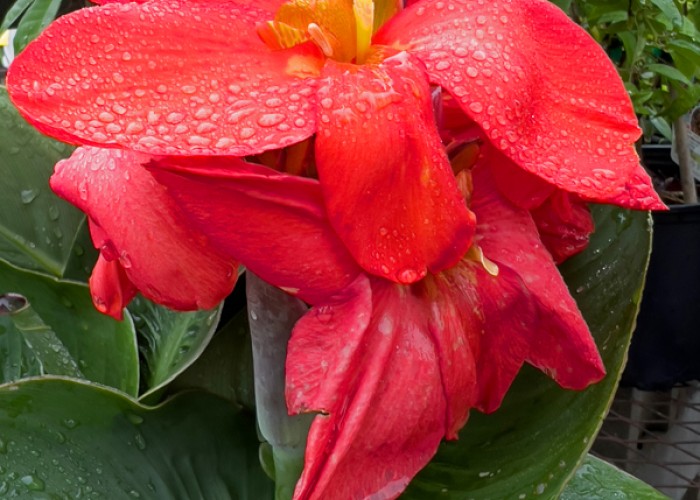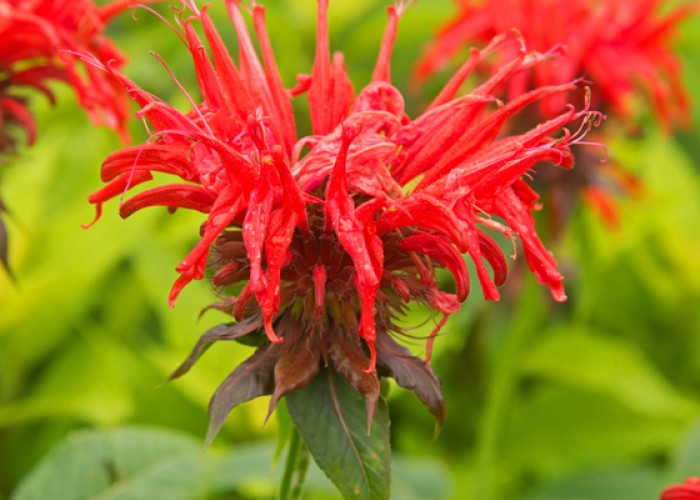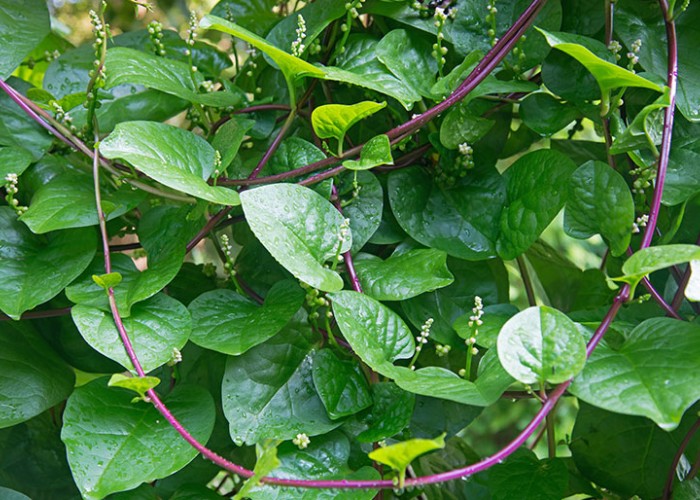‘Holey’ Terrors
Plus Garden To-Do’s for May
By L.A. Jackson
Holey eggplants! It’s flea beetle damage!
L.A.’s website of the month:
Angel Trumpet Nursery. As advertised, this Georgia nursery specializes in e-selling a wide range of beautiful angel trumpets (Brugmansia sp.).
OK, let’s see a show of hands. How many gardeners have plants with foliage that now looks like green Swiss cheese — leaves peppered with tiny, round holes? If so, the chances are pretty good flea beetles did the dastardly deeds.
Often doing damage to veggie crops such as spinach, turnips, eggplant, peppers, broccoli, cabbage, tomatoes, radishes and potatoes, flea beetles are minute menaces (about ( 1⁄16 of an inch long) that start pestering plants in the spring, but there is usually more than one generation of them during the growing season, so they can be a problem through the whole summer.
Since young plants have fewer leaves, they often suffer the most from holey flea beetle damage. More mature plants can withstand such pinpoint perforations better, but will look raggedly ugly and, since there is less leaf area to maintain a maximum photosynthesis process, can have a downturn in crop production. Also, such damage provides an excellent breeding ground for various diseases to come out and play.
And here’s some more bad news: While adults chomp holes in your plants’ leaves, immature flea beetle larvae living underground are having a munch-fest on the roots.
There are many different species of flea beetles in our state, and while some are picky about the plants they chew up, others are more general feeders. All of them, of course, are not welcome in the veggie patch. So, what can you do to get them to bug off?
Floating row covers will physically keep flea beetles away, and they will work fine for young plants just set out in the garden but can get in the way for maturing vegetables that need insect pollinators to produce bumper crops.
Chemically, while insecticides containing carbaryl have been a standard bug bopper for flea beetles, I have leaned to the organic side, using insecticidal soap, pyrethrins or neem oil to counter the aggravating adults and occasionally dusting food-grade diatomaceous earth on the ground around the plants to deal with their larvae.
Flea beetles that find a favorable garden will hang around underground and overwinter in place, waiting for another springtime feast. So, in the fall, clean up the vegetable patch by removing any debris and spent plants. Then, turn the soil over and repeat this dirt flipping again in the dead of winter to make your garden inhospitable to these tiny holey terrors.
Garden To-Do's for May
Be they hot or sweet, ornamental or edible, peppers grow best in full sun. Mixing plenty of compost or a commercial soil conditioner in the planting holes will help kick start pepper plants into strong growing mode. Resist the urge to apply a high-nitrogen fertilizer because it will stimulate excessive foliage at the expense of pepper production. Also, peppers can hold back on forming blooms — future fruits—during extended hot, dry times, so add about three inches of mulch around the plants to help conserve ground moisture and water weekly when the rain don’t come.
-
When irrigating new plantings, encourage developing roots to reach deep down into the soil with thorough waterings, not quick sprtizes here and there. Plants with shallow root systems are more susceptible to stress during the hottest, driest times of the growing season.
-
This month is a prime time to plant gladioli. The best location for the corms of these pretties is in a well-draining, sunny site protected from the wind — tall varieties tend to be floppers. For faster development, mulch the planting site and water regularly after glad spikes start popping out of the ground.
-
More May gardening tips
-
Share this story:







